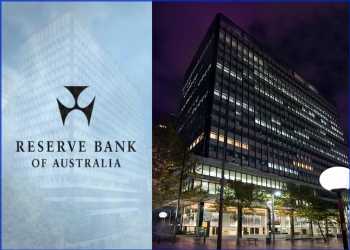The Reserve Bank of Australia unexpectedly raised its key interest rate for a second policy session in a row as policymakers assessed inflation as high and considered the risk of high inflationary expectations feeding into wage increases and prices.
The central bank also signaled that more tightening may be required in the future to bring inflation back to the target of 2-3 percent.
The RBA Board, led by Governor Philip Lowe, raised the cash rate target by 25 basis points to 4.10 percent. Economists had expected the bank to leave the rate unchanged.
The key interest rate is now at its highest level since early 2012.
The central bank also increased the interest rate paid on exchange settlement balances by 25 basis points to 4.00 percent.
“Inflation in Australia has passed its peak, but at 7 percent is still too high and it will be some time yet before it is back in the target range,” the RBA reiterated.
“This further increase in interest rates is to provide greater confidence that inflation will return to target within a reasonable timeframe.”
The previous change in the cash rate target was a quarter-point hike in May.
“Some further tightening of monetary policy may be required to ensure that inflation returns to target in a reasonable timeframe, but that will depend upon how the economy and inflation evolve,” the central bank added.
The RBA pointed out that the upside risks to the inflation outlook have increased and the Board has responded to this.
Services price inflation is still very high and is proving to be very persistent overseas, the bank said.
Policymakers assessed that the labor market remains very tight despite some easing in conditions. Though labor shortages have eased, job vacancies and advertisements are still at very high levels, the bank said.
The board will continue to pay close attention to both the evolution of labor costs and the price-setting behavior of firms, the RBA said.
The path to achieving a soft landing remains a narrow one, the bank said. The combination of higher interest rates and cost-of-living pressures is leading to a substantial slowing in household spending, the RBA observed.
Westpac Chief Economist Bill Evans said the RBA is likely to deliver a follow-up hike in July to emphasize that it has rebalanced its focus on inflation and inflationary expectations.
Further, the bank may again raise rates in August when the June quarter inflation report would be available, the economist said.
“We expect that underlying inflation will have dropped from 6.6 percent to 6.1 percent but labor markets will remain tight and the ongoing concerns around wage pressures will persist,” Evans said.
“The additional risk for the August meeting is that, due to these concerns around expectations, the staff may raise their inflation forecasts which would open the door to another rate increase.”
Westpac currently expects the first RBA easing to come in February 2024.
Economists at ING and J.P. Morgan, however, expect that the rate has reached its peak and the RBA is unlikely to raise rates further with the prospect of a sharp slowing in inflation in the coming months.
Official figures on first quarter GDP are due on Wednesday. Quarterly growth is expected to have weakened to 0.3 percent from 0.5 percent in the previous three months.
Source: Read Full Article
-
Black Unemployment 70% Higher Than White
-
Alnylam Q2 Loss Widens, SGEN Boosts Revenue Outlook, NVCR To Report LUNAR Study Data In Q1
-
U.S. GDP Growth Unexpectedly Upwardly Revised To 3.2% In Q3
-
Days from chaos: The clock is ticking again for a US government shutdown
-
French Industrial Production Recovers In July

